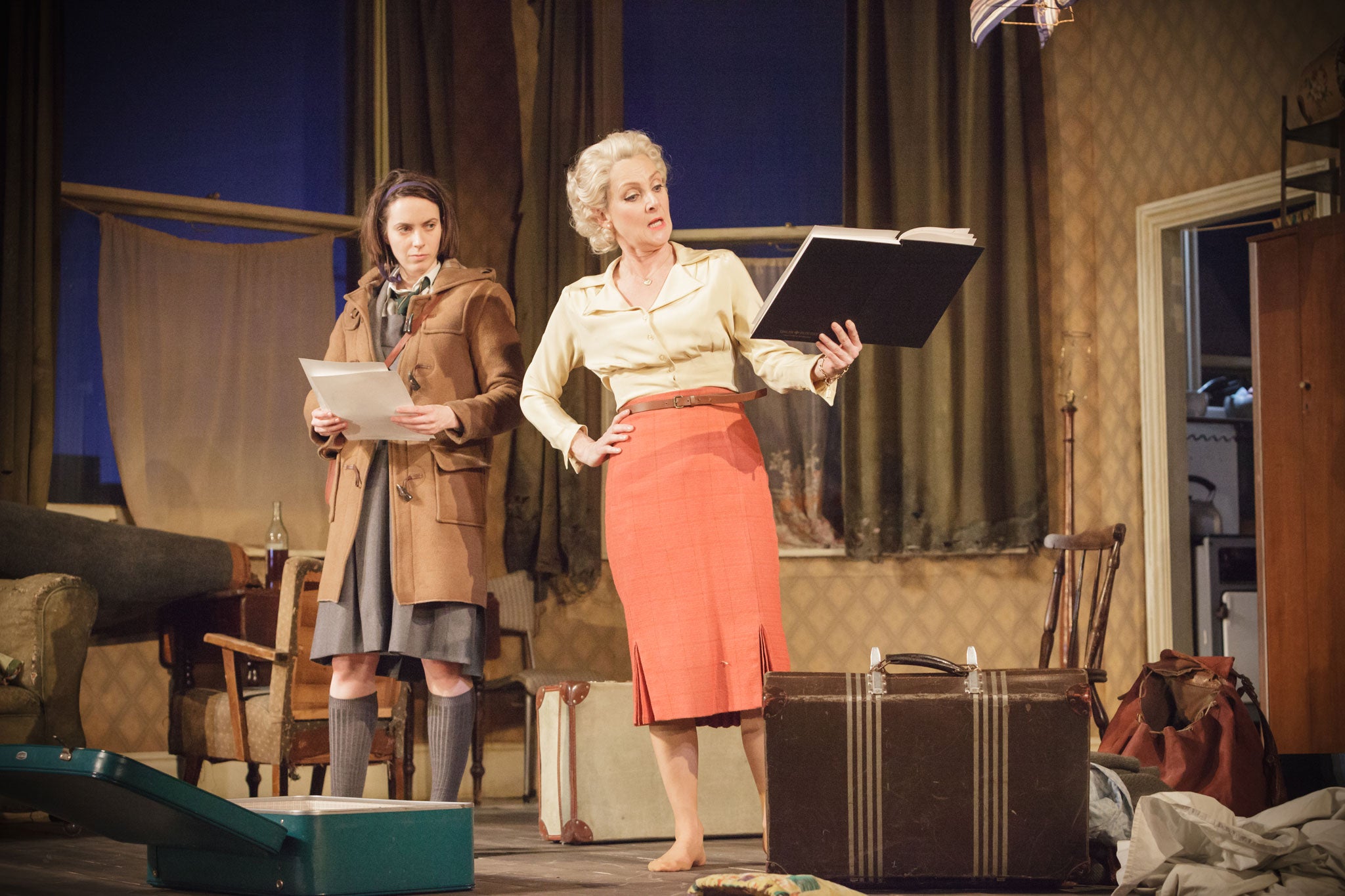A Taste of Honey, Lyttelton, theatre review
National Theatre, London

Shelagh Delaney, then an eighteen year old working-class Salford girl, famously wrote A Taste of Honey after seeing Terence Rattigan's Variations on a Theme at the Manchester Opera House.
Irritated by its swanky French Riviera ambience and its coded evasiveness about homosexuality, she retaliated with this ground-breaking debut play, set in the grimy back-to-back terraces of her home town, and focusing on a teenager who is abandoned by her feckless mother, impregnated by a black sailor, and looked after by a gay art student.
By a nice coincidence, the much-derided Variations on a Theme is shortly to receive its first major reassessment in over fifty years at the Finborough Theatre.
It remains to be seen whether that piece can now be brought in from the cold as part of the well-founded rehabilitation of Rattigan in recent years. Meanwhile, as Bijan Sheibani's zestful new revival in the Lyttleton attests, Delaney's 1958 play still disarms and exhilarates through the irreverent vitality with which it tackles subjects (single motherhood, homophobia et al) that might have seemed ripe for doctrinaire agit-prop treatment.
Her characters are too busy being full of unruly, incorrect life ever to become mouthpieces in a social sermon. Lesley Sharp and Kate O'Flynn brilliantly bring out the abrasive music hall double-act quality in the funny, painful slanging matches between Helen, the tarty, irresponsible mother, who lives hand-to-mouth off fancy men, and Jo, the oddball daughter who is both older and younger than her years because of this maternal neglect.
Splendid at the sardonic combativeness and the stubborn refusal to subscribe to romantic cliches, O'Flynn is also unsentimentally very touching in those moments – with her gay flatmate and protector Geoffrey (a sensitive, dignified performance from Harry Hepple) – where youthful joy overcomes Jo's disillusion and where her neediness for Helen is seen at it rawest. “Look at my face. Every line tells a dirty story,” says Helen, the kind of parent who thinks that unapologetic candour (“Have I ever laid claim to being a proper mother?”) lets you off the hook.
Sharp's excellent portrayal unleashes the sheer unholy gusto and energy of this woman “We enjoy it,” she barks backs, when Geoffrey asks her to tone in one of her rows with Jo. She may be a monster but she's a life force. It's not just the back-to-back cobble streets of Hildegard Bechtler's monumental design that remind you that this play was a key precursor of Coronation Street with its resilient matriarchs. And Sharp's Helen has a brief, beautifully understated bout of disarray when her drunken spouse crashes off without her.
Between the scenes, building on the original stage directions, there are sequences where the characters dance to modern jazz while they go about their activities (mopping the room, opening parcels) or when Jo 's willing seduction by Eric Kofi Abrefa's sailor is presented as a twirling mock-ballet. There's a good-humoured mischievousness an in these little interludes that reinforces the play's admirable refusal to succumb to po-faced piety or self-pity.
To 11 May; 020 7452 3000
Subscribe to Independent Premium to bookmark this article
Want to bookmark your favourite articles and stories to read or reference later? Start your Independent Premium subscription today.

Join our commenting forum
Join thought-provoking conversations, follow other Independent readers and see their replies